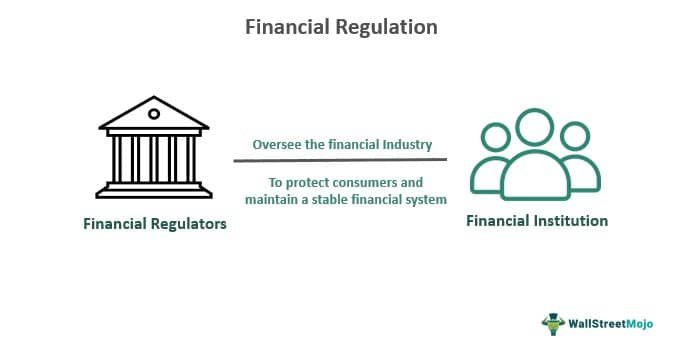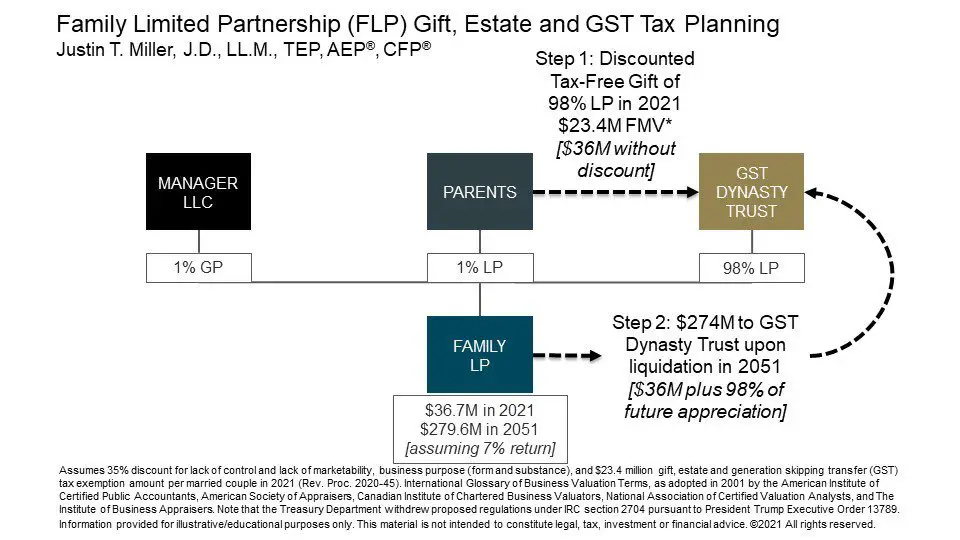Financial regulators play a crucial role in safeguarding the integrity and stability of our financial systems. They are responsible for overseeing and enforcing regulations that govern financial institutions, markets, and participants. Wondering what is the role of financial regulators? Well, they act as vigilant watchdogs, monitoring activities and ensuring compliance with rules and standards. With their expertise and authority, they promote transparency, fair practices, and investor protection. In this blog article, we will delve into the multifaceted role of financial regulators, exploring the significance of their work and the impact they have on our economy. So, let’s unravel the role of financial regulators and understand how they contribute to the smooth functioning of our financial ecosystems.
What is the Role of Financial Regulators?
Financial regulators play a crucial role in ensuring the stability and integrity of financial markets. They are responsible for overseeing and enforcing regulations that govern financial institutions, market participants, and related activities. These regulations aim to protect consumers, maintain market confidence, and promote fair and transparent practices within the financial industry. In this article, we will explore the various aspects of the role of financial regulators and their importance in safeguarding the financial system.
1. Supervision and Regulation of Financial Institutions
One of the primary responsibilities of financial regulators is to supervise and regulate financial institutions such as banks, credit unions, insurance companies, and investment firms. This oversight is necessary to ensure that these institutions operate in a safe and sound manner, following established guidelines and regulations. Key areas of focus include:
- Licensing and Authorization: Financial regulators grant licenses and authorizations to financial institutions, ensuring they meet specific requirements and have the necessary capabilities to operate.
- Capital Adequacy: Regulators establish minimum capital requirements for financial institutions to ensure they have enough financial resources to absorb potential losses and maintain stability.
- Prudential Standards: Financial regulators set prudential standards that cover areas such as risk management, liquidity, corporate governance, and internal controls to mitigate the likelihood of financial crises.
- Consumer Protection: Regulators enforce rules to protect consumers from unfair practices, ensure transparency in financial product offerings, and promote responsible lending and borrowing.
2. Market Surveillance and Enforcement
Financial regulators are responsible for monitoring and surveilling financial markets to detect any potential misconduct, market manipulation, or illegal activities. They enforce regulations that promote fair and orderly markets by:
- Market Integrity: Regulators enforce rules to prevent market abuse, insider trading, fraud, and other manipulative practices that could undermine market integrity.
- Market Transparency: Regulators establish reporting requirements and surveillance mechanisms to ensure transparency in trading activities, pricing, and disclosures.
- Enforcement Actions: When violations occur, regulators have the authority to investigate, impose sanctions, and take legal actions against individuals or entities involved in fraudulent or non-compliant activities.
3. Policy Development and Implementation
Financial regulators contribute to the development and implementation of policies that promote stability, competitiveness, and innovation within the financial industry. They work closely with government bodies, industry stakeholders, and international organizations to:
- Regulatory Framework: Regulators participate in the formulation of regulations, guidelines, and prudential standards to address emerging risks, technological advancements, and changes in the financial landscape.
- Macroprudential Policies: Regulators develop and implement macroprudential policies to monitor and mitigate systemic risks that could impact the overall financial system.
- International Cooperation: Financial regulators collaborate with their counterparts from other countries to establish consistent regulatory frameworks, exchange information, and address cross-border challenges.
- Fintech and Innovation: Regulators play a crucial role in fostering innovation in financial services by providing a supportive regulatory environment that balances consumer protection, risk management, and technological advancements.
4. Financial Stability and Crisis Management
Financial regulators are pivotal in maintaining financial stability and managing potential crises. They work to identify and address systemic risks that could disrupt the functioning of the financial system:
- Early Warning Systems: Regulators develop mechanisms to identify emerging risks and vulnerabilities in the financial system, allowing for timely actions and mitigations.
- Stress Testing: Regulators conduct stress tests on financial institutions to assess their resilience to adverse scenarios and ensure they have adequate risk management practices in place.
- Resolution and Recovery: In the event of a financial institution’s failure, regulators have frameworks in place to facilitate the orderly resolution and recovery process, minimizing the impact on the wider financial system.
- Systemic Risk Mitigation: Regulators implement policies and regulations to limit excessive risk-taking, promote transparency, and enhance risk management practices across the financial industry.
5. Investor and Consumer Protection
Financial regulators play a vital role in protecting investors and consumers. They enact regulations and enforce standards to ensure fair treatment, transparency, and access to reliable financial products and services:
- Disclosure and Transparency: Regulators require financial institutions to provide accurate and comprehensive information to investors and consumers, enabling them to make informed decisions.
- Investor Education: Regulators promote investor education programs to enhance financial literacy, empowering individuals to navigate the complexities of the financial markets and make sound investment choices.
- Dispute Resolution: Regulators establish avenues for resolving disputes between financial institutions and their customers, ensuring a fair and efficient process.
- Consumer Complaints: Financial regulators provide platforms for consumers to lodge complaints against financial institutions and take appropriate actions to address grievances.
In conclusion, financial regulators have multifaceted responsibilities aimed at ensuring the stability, fairness, and integrity of the financial system. From supervising and regulating financial institutions to enforcing market integrity and promoting investor protection, their role is fundamental in maintaining a robust and trustworthy financial environment. By implementing effective regulations, conducting thorough oversight, and fostering innovation in a well-balanced regulatory framework, financial regulators contribute to the overall health and resilience of the financial industry.
The role of financial regulation
Frequently Asked Questions
Frequently Asked Questions (FAQs)
What is the role of financial regulators?
Financial regulators play a crucial role in overseeing and regulating the financial industry. They are responsible for ensuring the stability, integrity, and transparency of financial markets. They enforce rules and regulations to protect consumers, promote fair competition, and maintain the overall health of the financial system.
How do financial regulators protect consumers?
Financial regulators protect consumers by monitoring financial institutions and market participants to prevent fraudulent activities and unfair practices. They enforce regulations that promote transparency, disclosure of information, and fair treatment of consumers. Additionally, they provide avenues for consumers to resolve complaints and seek redress in case of financial misconduct.
What measures do financial regulators take to maintain market stability?
Financial regulators take various measures to maintain market stability. They closely monitor financial institutions to ensure they have adequate capital and risk management practices. They also conduct stress tests to assess the resilience of the financial system to potential shocks. In times of crisis, they may intervene by providing liquidity support to prevent systemic risks.
How do financial regulators promote fair competition?
Financial regulators promote fair competition by enforcing anti-competitive practices regulations. They monitor mergers and acquisitions to prevent market monopolies and promote a level playing field. They also ensure that all market participants adhere to the same rules and regulations, preventing unfair advantages for specific entities.
What role do financial regulators play in preventing financial fraud?
Financial regulators play a critical role in preventing financial fraud. They establish regulations and guidelines to ensure proper risk management, internal controls, and reporting standards within financial institutions. They conduct audits and inspections to detect and deter fraudulent activities, imposing penalties and sanctions on those found guilty.
How do financial regulators contribute to the overall health of the financial system?
Financial regulators contribute to the overall health of the financial system by monitoring and assessing systemic risks. They establish capital adequacy requirements for financial institutions to ensure their stability. They also develop regulations and frameworks to enhance the resilience and risk management capabilities of the financial system as a whole.
How can individuals and businesses approach financial regulators for assistance or guidance?
Individuals and businesses can approach financial regulators through dedicated customer support channels or complaint resolution mechanisms. Financial regulators often have websites or helplines where individuals can seek guidance, report complaints, and access relevant information. They are committed to providing assistance and protecting the interests of consumers.
What is the relationship between financial regulators and other government agencies?
Financial regulators collaborate and coordinate with other government agencies to ensure effective regulation and supervision of the financial industry. They exchange information, share expertise, and cooperate in areas such as combating money laundering, terrorism financing, and cybersecurity threats. This collaboration helps to maintain the integrity and stability of the financial system.
Final Thoughts
Financial regulators play a crucial role in maintaining stability and ensuring the integrity of the financial system. They are responsible for overseeing and regulating financial institutions, markets, and various financial activities. Through their supervision, enforcement, and regulatory frameworks, they promote fair and transparent practices, protect consumers and investors, and mitigate systemic risks. Financial regulators also play a key role in promoting financial inclusion, combating money laundering and terrorist financing, and fostering innovation in the financial sector. In summary, the role of financial regulators is to safeguard the interests of the public and maintain the overall health and resilience of the financial system.



